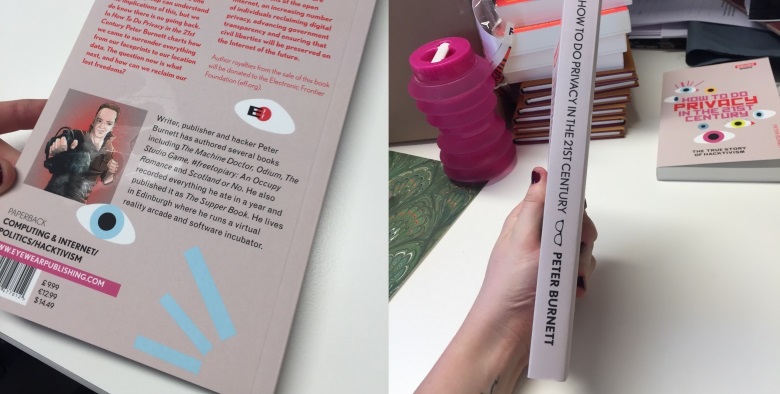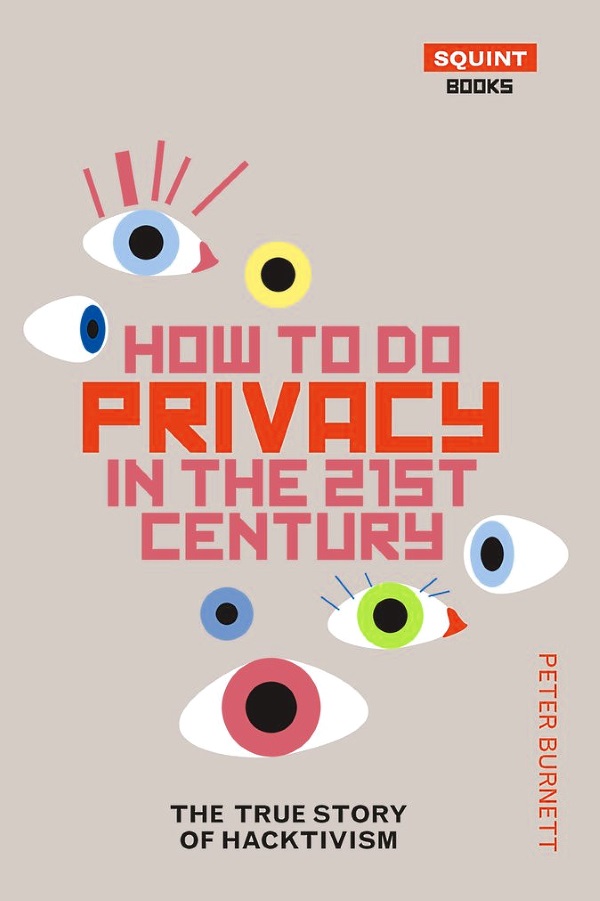The War on Privacy is lost, and states and corporations now collect more of our data than even they know what to do with. No one person or group can understand the implications of this, but there is no going back.
In How To Do Privacy in the 21st Century, Peter Burnett charts how we came to surrender everything from our faceprints to our location data. The question now is what next, and how can we reclaim our lost freedoms?
On our side, a new kind of activist is challenging surveillance and data collection, and working to protect free expression. In doing so, these 'hacktivists' have been pursued by governments as outlaws, and where they have revealed the mechanisms of state secrecy, they have paid the price with their freedom.
How To Do Privacy in the 21st Century describes some of the key players, discussing surveillance (Edward Snowden), freedom of information (Wikileaks), copyright issues (Kim Dotcom and The Pirate Bay) and journalism (Barrett Brown), among other topics.
The heroes of this book are the champions of the open Internet, an increasing group of individuals reclaiming digital privacy, advancing government transparency and ensuring that civil liberties will be preserved on the Internet of the future.
Author's royalties from the sale of this book will be donated to the Electronic Frontier Foundation (eff.org).
That does not mean that the EFF endorse this book, but much of their reserach and other material was used in the book's creation.
WHAT YOU WILL FIND IN HOW TO DO PRIVACY IN THE 21ST CENTURY by Peter Burnett:
Chapter 1 - WORLD WAR WEB
This chapter covers the story of Julian Assange and the obsession the United States administration has developed for his capture. Also detailed are the stories of activist Jeremy Hammond, and a background and argument for the support of the #Anonymous movement online
Chapter 2 - THE SURVEILLANCE STATE OF EMERGENCY
Chapter 2 comprises a brief history of state surveillance, commencing in colonial Massachussets before the American Revolution and leading through the World Wars of the 20th Century, completing the story with the mass amounts of unwarranted state surveillance carried out by today's governments, their reasons for doing so and the various 'bulk personal datasets' and other information upon us they now routinely collect and carry.

Chapter 3 - COLLECT IT ALL - THE CASE OF EDWARD SNOWDEN
This chapter is not a biography of Edward Snowden but a look at his releases, their implications and the many butchly named programmes he revealed that are being operated by the major state surveillance powers in the world. Included also is new research into some of these programs, through use of Snowden's own material.
Chapter 4 - INTERNET FOR SALE
As well as state surveillance we must be aware of corporate data collection, which is just as potentially harmful, if not more so. This chapter looks at copyright and other issues by examining the cases of the Pirate Bay and Kim Dotcom, both of whom continue to challenge outdated commercial and legal orthodoxies.
Chapter 5 - THE VALUED PRESS
Chapter 5 contains the case history of persecuted US journalist Barrett Brown, who was incarcerated for 63 months due to his investigation of private security contractors to the world's governments and corporations. This chapter also discusses the role of the press in general, and considers the impact of the Mossack Fonseca Papers (sometimes known as 'The Panama Papers') a fascinating case study into how journalism relates to entrenched political and corporate power.
Chapter 6 - WE ARE THE UNCONCERNED
Chapter 6 of HOW TO DO PRIVACY concerns yourself, discussing the cases of Lavar Levison (of LAVABIT) and the tragedy of young computer genius and activist Aaron Swartz. The argument presented is often that people do not mind this largescale data collection, and this chapter focuses on the implications of this lack of concern.
Chapter 7 - FUTURE FAMILIAR?
The final chapter discusses technology that may form the battleground for future devlopments in privacy, being the blockchain and the use of Internet-wide encryption. Read about the widespread scaremongering that goes on concerning Bitcoin, and the battle for future technology between concerned citizens and activists, and commercial and other interests.

